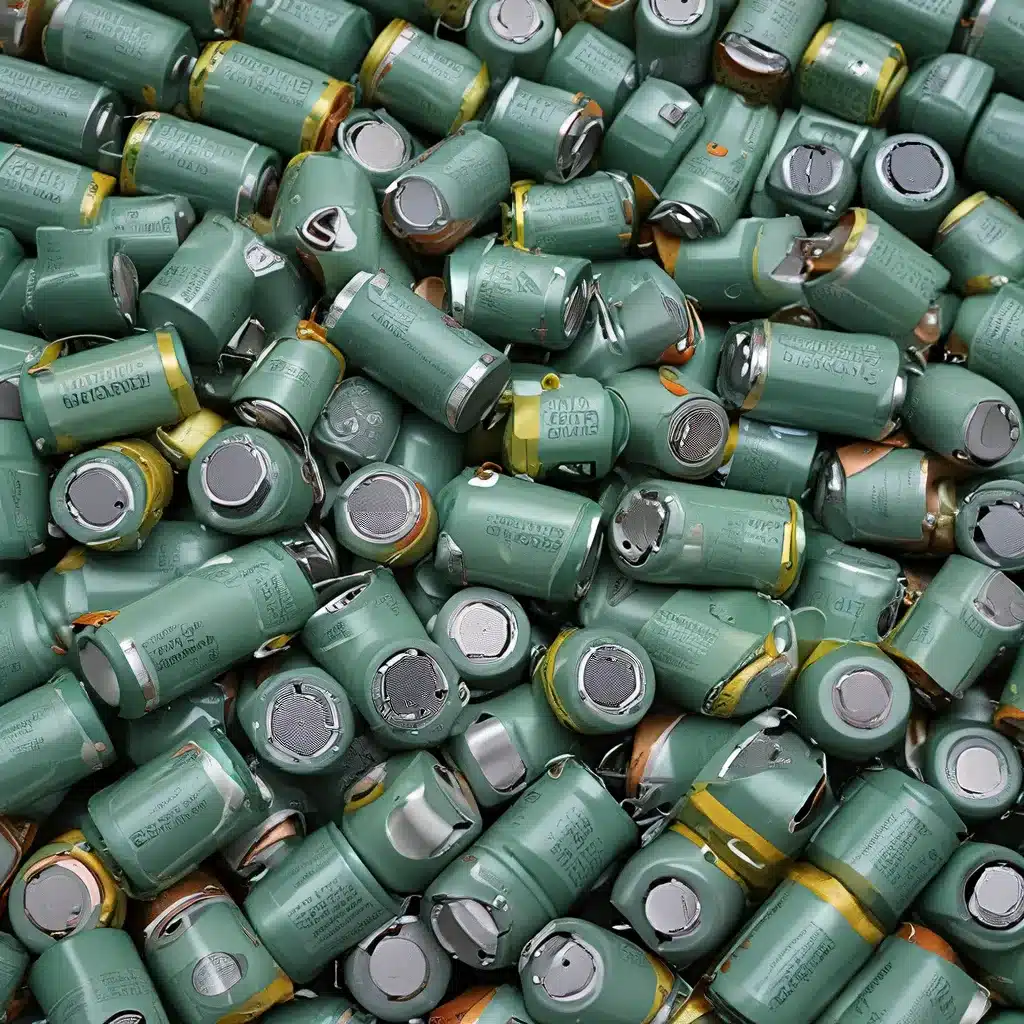
As the world becomes increasingly reliant on renewable energy solutions, the importance of sustainable battery recycling has never been more crucial. Lithium-ion batteries, the backbone of our modern digital and electric-powered lives, are a prime example of how we can close the loop and create a truly circular economy.
The Challenges of Battery Waste
Let’s face it – we’re a society addicted to our gadgets. From smartphones and laptops to electric vehicles and industrial machinery, lithium-ion batteries power the technologies that keep our lives running. But what happens when these batteries reach the end of their useful life? Sadly, the reality is that most end up in landfills, leaching harmful chemicals and wasting valuable resources.
It’s a problem that’s only going to get worse as the demand for lithium-ion batteries continues to skyrocket. According to the World Economic Forum, the amount of lithium-ion battery waste is expected to grow from 0.25 million tonnes in 2021 to 1.5 million tonnes by 2030. That’s a staggering increase that we simply can’t ignore.
The Rise of Sustainable Recycling Solutions
Thankfully, there are companies and innovators out there who are working to tackle this challenge head-on. One such company is Li-Cycle, a strategic partner of the KION Group, a leading manufacturer of industrial trucks and logistics solutions.
Unlike traditional battery recycling methods that rely on energy-intensive smelting processes, Li-Cycle has developed an innovative, sustainable two-stage recycling process that can recover up to 95% of the valuable materials in a lithium-ion battery. This includes lithium, cobalt, copper, and nickel – all crucial components that can be reused in the production of new batteries.
The KION Group, the market leader in electric-powered industrial trucks, is partnering with Li-Cycle to establish a sustainable and regional battery ecosystem. By 2030, the KION Group aims to have up to 5,000 tonnes of end-of-life battery material processed at the Li-Cycle recycling plant in Magdeburg, Germany – the equivalent of around 15,000 large lithium-ion batteries used in their counterbalance trucks.
The Circular Economy in Action
This partnership is a prime example of how the circular economy can work in practice. By closing the loop on lithium-ion battery recycling, the KION Group and Li-Cycle are ensuring that these valuable resources are kept in the supply chain, rather than ending up in landfills.
But the benefits of this approach go beyond just environmental sustainability. It also makes business sense. As Henry Puhl, the Chief Technology Officer of the KION Group, explains, “Lithium-ion is the powertrain of the future. As the market leader for electric industrial trucks, we want our product solutions to play a key part in driving our industry’s net-zero transformation. With Li-Cycle at our side, we can then establish a sustainable and regional battery ecosystem.”
The Future of Battery Recycling
The partnership between the KION Group and Li-Cycle is just the tip of the iceberg when it comes to the future of lithium-ion battery recycling. As more and more industries and consumers embrace renewable energy solutions, the demand for sustainable battery management will only continue to grow.
According to the World Economic Forum, the global battery recycling market is expected to reach $12 billion by 2025, with a compound annual growth rate of over 20%. This presents a huge opportunity for companies and innovators who are willing to invest in the development of new recycling technologies and closed-loop systems.
Of course, there are still challenges to overcome. The complex chemistry of lithium-ion batteries, the logistical hurdles of battery collection, and the lack of regulation in some regions are all factors that need to be addressed. But with the right research, investment, and collaboration, I’m confident that we can create a future where battery waste is a thing of the past.
Toward a Sustainable Future
As I reflect on the progress being made in lithium-ion battery recycling, I can’t help but feel a sense of optimism about the future. By closing the loop and reusing these valuable materials, we’re not only protecting the environment but also building a more resilient and sustainable energy ecosystem.
At Firewinder, we’re committed to supporting the development of renewable energy solutions that prioritize sustainability and circularity. We believe that by championing innovative recycling technologies and fostering collaborative partnerships, we can create a future where battery waste is a distant memory and clean energy powers our world.
So, the next time you reach for your smartphone or hop into an electric vehicle, take a moment to appreciate the incredible journey that the lithium-ion battery has been on. And rest assured that there are dedicated individuals and organizations working tirelessly to ensure that these essential components of our modern lives can be reused, recycled, and revived for generations to come.

